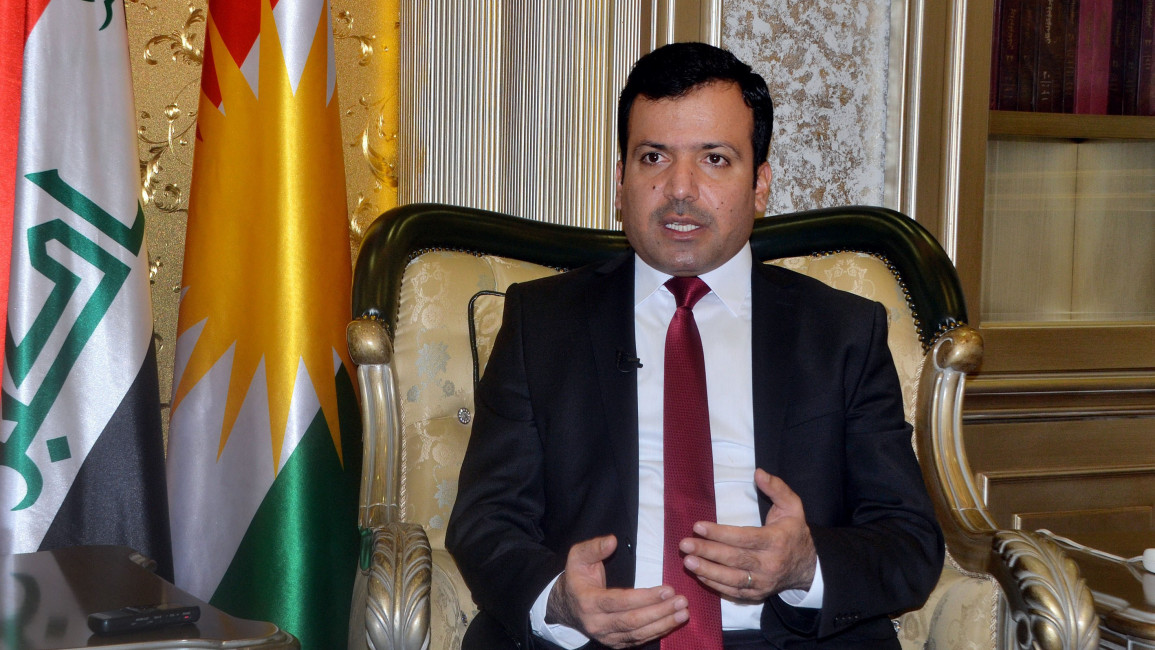KRG's former parliament speaker defies Kurdish authorities at Iraq's top court
The former speaker of the Iraqi Kurdistan region parliament on Monday filed a legal case at Iraq's Supreme Federal Court challenging the 'illegitimate' extension of the region’s parliament, government and presidency after their terms expired a day earlier.
The Kurdistan Parliament on 9 October unanimously passed law number 12 for the year 2022, in which the parliament’s mandate has been extended to last until late 2023.
The two main Kurdish ruling parties, the Kurdistan Democratic Party (KDP) and the Patriotic Union of Kurdistan (PUK), backed by some lawmakers from the ruling Change Movement, the minorities and other small parties, extended the parliament's term after a general election scheduled for 1 October was postponed. The delay was due to disagreements among the region’s political parties on key issues, including how the region be divided up for the vote.
The parliament's law was enacted on 2 November, after it was published in issue number 293 of the Waqaei Kurdistan (the Kurdish Facts) formal newspaper.
"We filed a legal case at the Iraqi Supreme Federal Court on 7 November against the illegitimate and unconstitutional extension of the terms of Kurdistan region’s parliament as well as other authorities in the region," Yousuf Mohammed Sadiq, former speaker of the Kurdistan parliament exclusively told The New Arab.
"In our complaint, number (248/federal/2022), we taunted the constitutionality of the Kurdistan parliament's passing of law number 12 of 2022, and the unconstitutional and illegitimate extension of the terms of the Kurdistan region’s authorities without holding fair and clean elections," Sadiq said.
"The three legislature, executive and presidential authorities in the Kurdistan region have lost legitimacy from 6 November, since their terms have expired. Thus, extending their mandates are illegitimate and contrary to the principles of democracy, the articles of the Iraqi constitution- that the people of Kurdistan have also voted for it," Sadiq clarified.
"Meanwhile, the region’s authorities cannot restore their legitimacy via fraudulent elections and without barring the armed security forces to not intervene in the elections. We expect the court will initiate seeing our complaint in the near future," he added.
The Kurdistan region in northern Iraq, which should hold general elections every four years, held its last general elections in September 2018. The election witnessed a low turnout of 57% and was marred by alleged large-scale voter fraud by. After the elections, the parliament voted to trust the Kurdistan Regional Government (KRG) and then elected a president for the region.
The Kurdistan Parliament and the three ruling parties say they want to use the additional year to discuss a draft for a long-sought constitution for the region.
Lawmakers from the Kurdistan Islamic Union (KIU), a Kurdish opposition party, on 13 October announced their resignation to protest the extension.
Other opposition parties, The New Generation Movement (NGM), the Kurdistan Justice Group (KJG), and several independent PMs have all decided to withdraw from the 111-seat legislature.
Shaswar Abdulwahid, NGM's president, on 23 October has announced that he has filed a legal case at Iraq’s Federal Supreme Court against the top Kurdish authorities for the "unlawful and unconstitutional" extension of the parliament's term.



